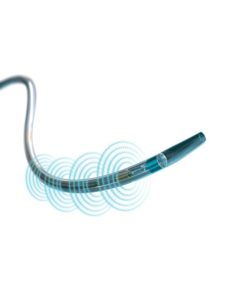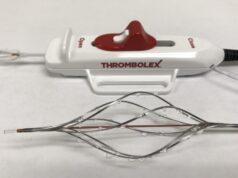
Boston Scientific has commenced enrolment in the HI-PEITHO clinical trial, a collaborative research study with the Pulmonary Embolism Response Team (PERT) Consortium and the University Medical Center of the Johannes Gutenberg University of Mainz (Mainz, Germany) comparing use of the EkoSonic endovascular system (EKOS) in combination with anticoagulation to anticoagulation alone for the treatment of acute, intermediate-high-risk pulmonary embolism (PE).
The EKOS system uses ultrasound energy in combination with a thrombolytic drug to dissolve blood clots and restore blood flow in patients with PE and peripheral arterial occlusions. According to a company press release, the ultrasound technology used by the EKOS system accelerates thrombolysis, minimising the time it takes to treat a patient and lowering the necessary thrombolytic dose, which can result in optimised outcomes and a lower risk of bleeding.
“I am honoured to be part of this study’s global leadership whose mission is to bring forth guidelines-informing data that will ensure physicians can feel confident in the most appropriate strategy for treating patients with intermediate-high-risk PE,” said Stavros Konstantinides (University Medical Center of the Johannes Gutenberg University of Mainz, Mainz, Germany), study co-lead principal investigator.
The randomised HI-PEITHO trial will enrol up to 544 patients with confirmed acute, intermediate-high-risk PE at as many as 65 sites in the USA and Europe. The trial, which will follow patients for one year, will assess whether treatment with the EKOS system in combination with anticoagulation is associated with a significant reduction in adverse events compared to anticoagulation alone, within seven days of randomisation. The composite primary endpoint is defined as PE-related mortality, cardiorespiratory decompensation or collapse and non-fatal symptomatic and objectively confirmed recurrence of PE.
“Optimal treatment of PE is still poorly understood and there is a need for a coordinated institutional approach to this complex, life-threatening problem,” said Kenneth Rosenfield (Massachusetts General Hospital, Boston, USA), study co-lead principal investigator. “The lead investigators of the trial are pleased to collaborate with the PERT Consortium, which is committed to evidence-driven therapy and is proud to take part in the HI-PEITHO study, aiming to advance the care of patients with PE.”









